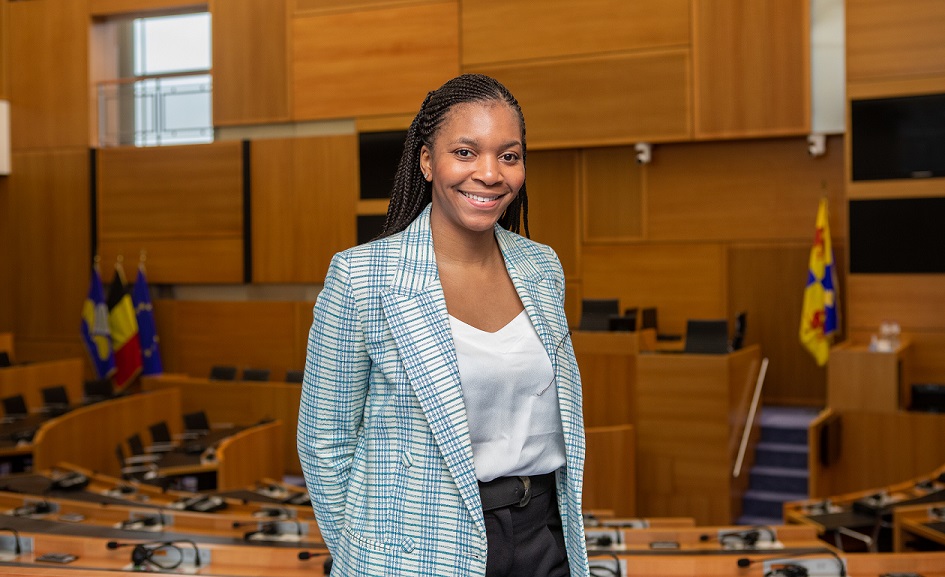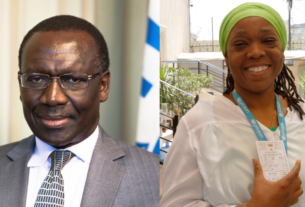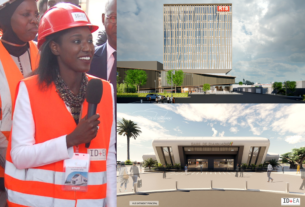At 28, Gladys Kazadi holds several positions: vice-president of the movement “Les Engagés”, one of the largest political parties in Belgium, a position she has held since June 2022; member of the Brussels Parliament; and local councillor in the Brussels commune of Berchem-Sainte-Agathe. Despite her many political activities in Belgium, Gladys Kazadi explains in this interview that she continues to follow closely the news from the Democratic Republic of Congo (DRC), her country of origin, where she is also active in various associations working in the country.
Since June 2022, you are the vice-president of the political movement “Les engagés”. What are your responsibilities and priorities in this position?
I am particularly responsible for citizen action. This is an important mission, because it allows for citizen participation on the one hand and, on the other, to strengthen synergies with civil society and to translate the values of our Movement into a concrete action plan that meets the real needs of citizens.
We now need a mobilisation linked to the field and the social realities experienced by our fellow citizens. I intend to embody this commitment and also to make the link with the associative fabric by highlighting their work and by making it resonate with that of the Movement Les Engagés.
This function of vice-president is complementary to my daily work. Being on the ground, being in contact with associations and citizens, with the aim of moving forward, hand in hand, towards a regenerated society is already at the heart of my political action.
My priorities are, among others, to ensure a better link with the actors on the ground and to accompany our representatives on the ground.
At Les Engagés, we believe that words are not enough and that we need actions! Our movement is rooted in civil society, encourages internal participation and promotes the debate of ideas and permanent dialogue with its members and any interested citizen.
What motivated you to enter politics and join “Les Engagés”, the former Humanist Democratic Centre?
Being active in associations, I realised that we are dependent on political choices and on what is done at the political level. Moreover, I have always been interested in politics and, in terms of representativeness, I regretted the fact that parliaments did not reflect the citizens and that certain sensitivities were therefore missing. As a young woman of foreign origin, I felt I could bring this sensitivity to the table. So I decided to join a centrist party (the CDH at the time). Today, we have a new movement: Les Engagés. It is a positive movement, more open, more in tune with contemporary realities. A movement in which I am committed because I am convinced that the project of society that we defend is the project that will best respond to current and future challenges. At Les Engagés, we seek the fulfilment of every human being, whatever their origin, culture, etc. Where other parties fight for categories of people (for example, for the working class or for companies), we, Les Engagés, have decided to fight for all. We prioritise the common interest and not particular interests.
How would you describe yourself as a politician?
As a 28 year old woman, I consider myself part of the young and new generation. A generation that also wants to show that it has a place in politics, that it has an added value to contribute and that considers that it is necessary to work in synergy with the elders in politics in order to have a positive impact on present and future generations.
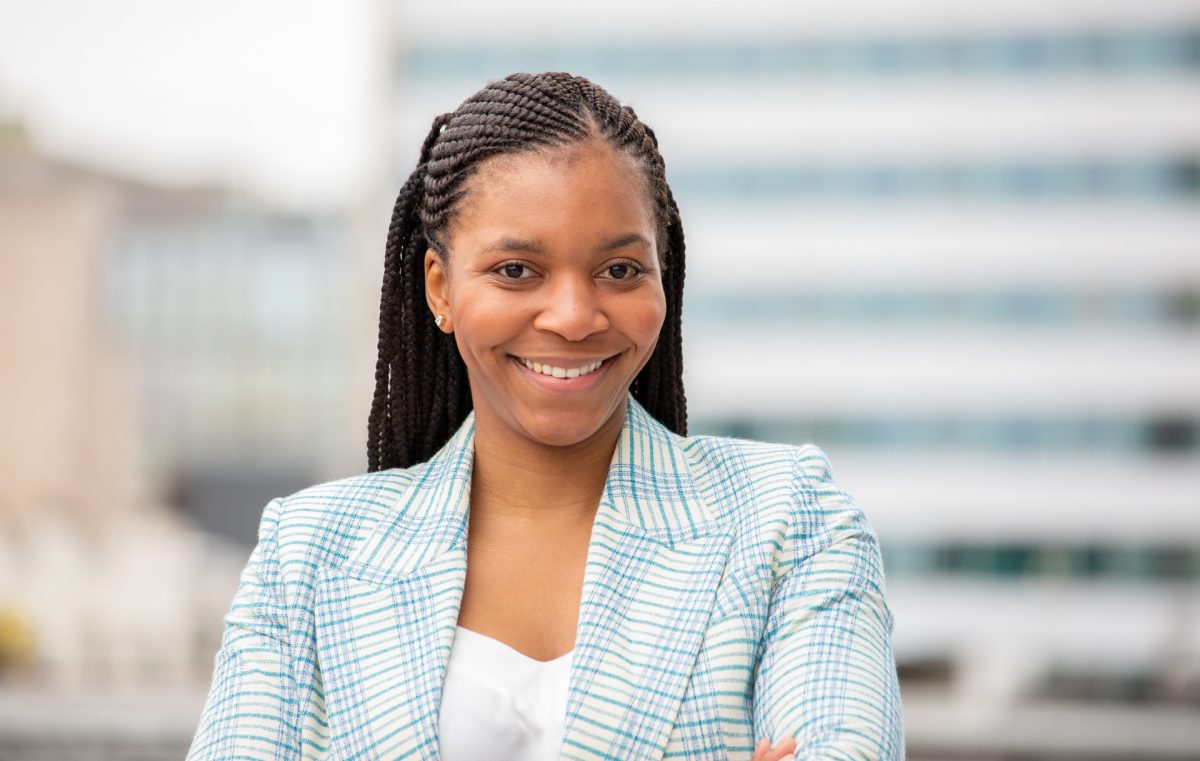
You are originally from the Democratic Republic of Congo (DRC). What is your relationship with your country of origin?
The Democratic Republic of Congo is a country with which I have a particular attachment, being of Congolese origin and also following closely what is happening there at the societal level. I am also active in various associations that work within the country. Another aspect of my relationship with the DRC is that my dissertation in both my university and high school studies has always been about the DRC. The last one was on the inter-community reconciliation process in Kivu.
What is the relationship between your political movement or the Brussels Parliament and the DRC?
I can mention a subject that I brought, with my movement, within the parliamentary bodies. We voted for a motion for a resolution on the structural and inclusive decolonisation of the public space, in order to be able to build a collective, shared and accepted colonial memory, to contextualise and teach the whole of Belgian colonial history, also including the point of view of Congolese historians and not just that of Belgian historians. This will, in my opinion, allow people to understand history and to learn from it. It is in this way, in particular, that prejudices and stereotypes can be deconstructed, because this colonial past, which is neither contextualised nor taught by including both points of view, reinforces stereotypes, prejudices and racism against people of Congolese origin in Belgium and against black people in general. It is important that the Belgian state acknowledges its responsibility for the wrongdoings committed during the colonial period and makes a public apology. King Philippe had, moreover, evoked Belgium’s regrets with regard to the suffering inflicted on the Congolese. This is a step in the right direction, a step towards an inclusive diversity and a successful living together and I will continue, with Les Engagés, to work in this direction.
Furthermore, with my colleague Pierre Kompany, we were present at the official ceremony for the return of the remains of Patrice Emery Lumumba to his family. This was a historic moment that had to be marked and it was therefore important for us at Les Engagés to be present.
What is the contribution of the Congolese diaspora in Belgium? What are the problems faced by this diaspora and how, at your level, do you try to bring solutions?
The Congolese diaspora is one of the largest diasporas among the sub-Saharan African diasporas in Belgium. It is a pro-active community, which is full of potential and is an added value to Belgium.
The obstacles facing this diaspora are many, but I will mention three. The first obstacle is obviously racism and prejudice, which results in discrimination in employment for example. In this respect, according to a recent report by Unia (an independent public institution that fights against discrimination and defends equal opportunities in Belgium), despite having a higher education diploma, young people of foreign origin (especially of Congolese origin) remain at a disadvantage on the labour market. The same case of discrimination can also be seen in the acquisition of housing.
Secondly, there is the difficulty of finding one’s place in society, particularly because of the structural discrimination that affects people on a daily basis, simply because of their skin colour, their clothing, their cultures and their beliefs. This is one of the struggles of Les Engagés. We are intransigent towards any form of rejection of the other, because we are convinced that we will succeed in creating a society if we live with each other, by getting to know each other, by agreeing on a common project and shared values.
The last obstacle is access to information. The fact that the channels used to transmit information are often not adapted to the Congolese diaspora audience. And therefore “the right information” does not reach them. This is a problem.
My job as a parliamentarian, with regard to these three obstacles, is to accompany people who are victims of racism and discrimination, to denounce them and to lobby government bodies so that solutions can be found and also so that there is a real sanction. It is also a role of relay, in order to allow people to have access to the right information and to direct them towards the appropriate structures. Finally, through my daily political action, I am committed to a more inclusive, more supportive and more tolerant society in which everyone can find their place and flourish.
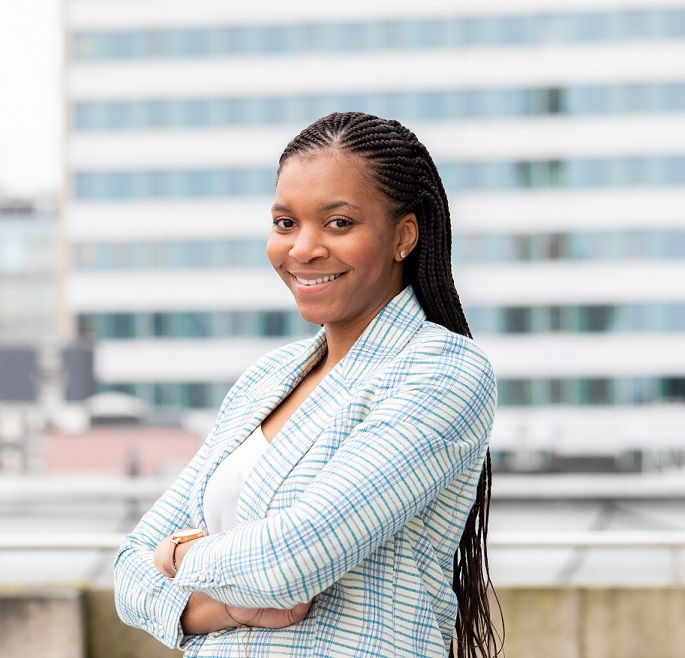
Belgium recently returned the remains of Patrice Lumumba to the DRC. What is the meaning of this restitution and what does the political figure of Patrice Lumumba mean to you?
I welcomed this step, this strong gesture of restitution by Belgium, which is only fair and deserves to be praised. I did so in my speech during the ceremony of homage to Patrice Emery Lumumba, last June, at the DRC Embassy in Brussels. And as I said, this is an event of great importance that will contribute, I hope, to a more peaceful relationship between Belgium and the Congo.
After 61 years of waiting, it is also, in a way, a victory for Lumumba’s family, for Congolese men and women throughout the world and, finally, for all those who are attached to truth, justice, freedom and human dignity. But there is still a long way to go to shed light on all the grey areas surrounding the assassination of this political figure, Patrice Lumumba. A political figure who is for me a symbol of true, sincere and unfailing commitment. He showed that no matter what might happen, as long as our struggle is noble and just, it should be fought. He is and will remain a source of motivation and inspiration in my political commitment. As a Belgian elected representative of Congolese origin, I will continue, through my actions, to defend these values of democracy, freedom and dignity that he held so dear.
What is a typical day for Gladys Kazadi and what are your working habits?
First of all, it should be said that no two days are alike when you are in a position like mine, and this is something I appreciate very much. There is no monotony. I usually start my day by listening to the news and reading my emails. Then I have a short meeting with my team to review the situation. From there, it’s a whole series of commissions with questions to ministers, meetings with municipal services, collaborators or the teams of the Mouvement Les Engagés. There are also visits to the field to listen to the problems of the actors on the ground, and citizens’ meetings because it is important to keep in touch with the citizens and try to help them in their daily difficulties.
What motivates you in your daily work?
It’s my will to fight for a more inclusive, tolerant and supportive society where everyone can find their place to flourish.
What do you mean by leadership and how do you put it into practice?
I see leadership as a way of inspiring, guiding and accompanying other people and enabling them to have the keys to fulfil themselves, to accomplish their projects, to defend their vision of society and to become in turn inspiring leaders for others.
What are the challenges you face and what is the most difficult part of your job?
As a young mother, Member of Parliament, alderman and Vice President, I face a challenge in terms of organisation and balancing family and professional life.
What is the best piece of advice you have received professionally and why?
It’s a piece of advice that was always given to me by my parents: to always believe in myself, in my abilities and never let anyone put me down or let me believe that I don’t belong where I want to be or that I am incapable of doing something.
What are your professional plans?
To continue to be an agent of change and to participate actively in the construction of a fairer, more inclusive society where everyone has the same opportunities to flourish. I want to continue to be useful, to do my bit to bring about positive change in society, whether it be through politics or not.
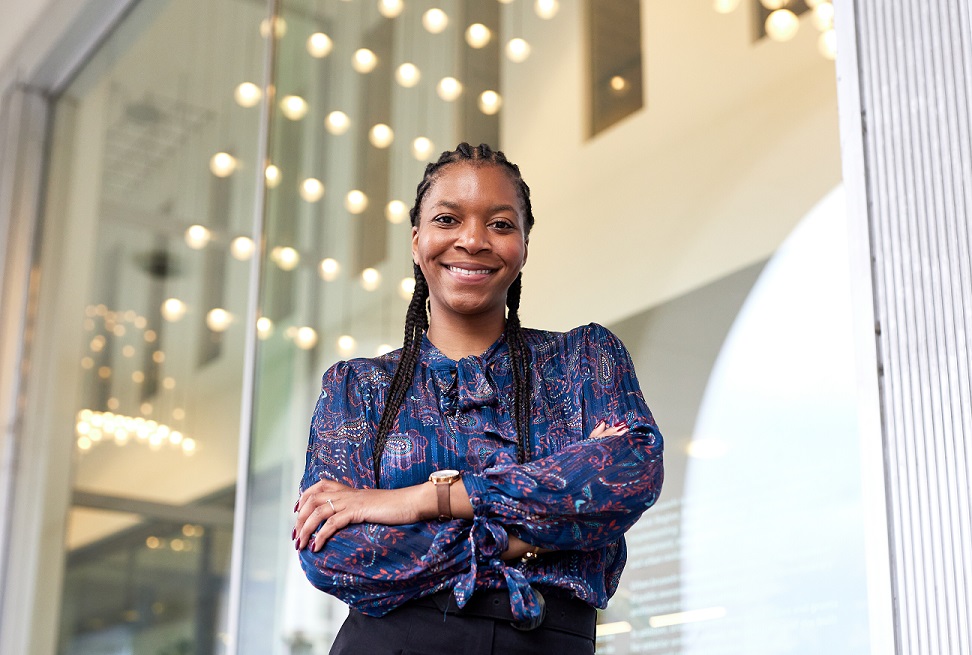
Interview Fast and Curious
Morning or evening? Morning
Field or office? Field
Reading or Cinema ? Reading
Tea or coffee ? Tea
LinkedIn, Twitter, Facebook, Instagram or Tik Tok ? Instagram
Train or plane? Train
Open space or office? Open space
E-mail, phone or video conferencing? Telephone
Weekend in Kinshasa or Nairobi? Kinshasa
Cooking or UberEats? UberEats
Congolese food or Belgian food? Joker
Meat or fish? Fish
TV series or movies? Movies
Congolese music or Afrobeat ? Afrobeat
Sneakers or heels ? Joker
